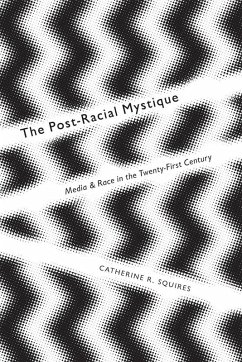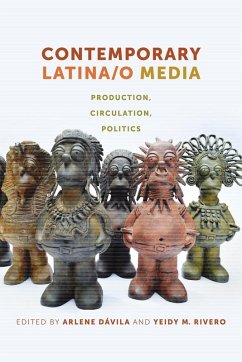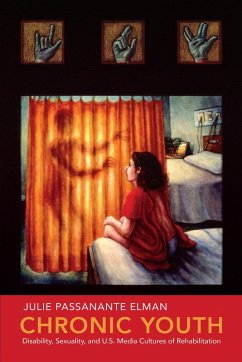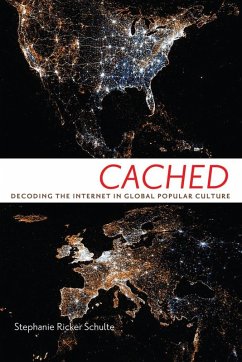
Sounds of Belonging (eBook, ePUB)
U.S. Spanish-language Radio and Public Advocacy
Versandkostenfrei!
Sofort per Download lieferbar
21,95 €
inkl. MwSt.
Weitere Ausgaben:

PAYBACK Punkte
11 °P sammeln!
How Spanish-language radio has influenced American and Latino discourse on key current affairs issues such as citizenship and immigration.Winner, Book of the Year presented by the American Association of Hispanics in Higher EducationHonorable Mention for the 2015 Latino Studies Best Book presented by the Latin American Studies AssociationThelast two decades have produced continued Latino population growth, and markedshifts in both communications and immigration policy. Since the 1990s, Spanish-language radio has dethroned English-language radio stations in major citiesacross the United States,...
How Spanish-language radio has influenced American and Latino discourse on key current affairs issues such as citizenship and immigration.
Winner, Book of the Year presented by the American Association of Hispanics in Higher Education
Honorable Mention for the 2015 Latino Studies Best Book presented by the Latin American Studies Association
The
last two decades have produced continued Latino population growth, and marked
shifts in both communications and immigration policy. Since the 1990s, Spanish-
language radio has dethroned English-language radio stations in major cities
across the United States, taking over the number one spot in Los Angeles,
Houston, Miami, and New York City. Investigating the cultural and political
history of U.S. Spanish-language broadcasts throughout the twentieth century, Sounds
of Belonging reveals how these changes have helped Spanish-language radio
secure its dominance in the major U.S. radio markets.
Bringing together theories on the immigration experience with
sound and radio studies, Dolores Inés Casillas documents
how Latinos form listening relationships with Spanish-language radio
programming. Using a vast array of sources, from print culture and industry
journals to sound archives of radio programming, she reflects on institutional
growth, the evolution of programming genres, and reception by the radio
industry and listeners to map the trajectory of Spanish-language radio, from
its grassroots origins to the current corporate-sponsored business it has
become. Casillas focuses on Latinos' use of Spanish-language radio to help
navigate their immigrant experiences with U.S. institutions, for example in
broadcasting discussions about immigration policies while providing anonymity
for a legally vulnerable listenership. Sounds of Belonging proposes that
debates of citizenship are not always formal personal appeals but a collective
experience heard loudly through broadcast radio.
Winner, Book of the Year presented by the American Association of Hispanics in Higher Education
Honorable Mention for the 2015 Latino Studies Best Book presented by the Latin American Studies Association
The
last two decades have produced continued Latino population growth, and marked
shifts in both communications and immigration policy. Since the 1990s, Spanish-
language radio has dethroned English-language radio stations in major cities
across the United States, taking over the number one spot in Los Angeles,
Houston, Miami, and New York City. Investigating the cultural and political
history of U.S. Spanish-language broadcasts throughout the twentieth century, Sounds
of Belonging reveals how these changes have helped Spanish-language radio
secure its dominance in the major U.S. radio markets.
Bringing together theories on the immigration experience with
sound and radio studies, Dolores Inés Casillas documents
how Latinos form listening relationships with Spanish-language radio
programming. Using a vast array of sources, from print culture and industry
journals to sound archives of radio programming, she reflects on institutional
growth, the evolution of programming genres, and reception by the radio
industry and listeners to map the trajectory of Spanish-language radio, from
its grassroots origins to the current corporate-sponsored business it has
become. Casillas focuses on Latinos' use of Spanish-language radio to help
navigate their immigrant experiences with U.S. institutions, for example in
broadcasting discussions about immigration policies while providing anonymity
for a legally vulnerable listenership. Sounds of Belonging proposes that
debates of citizenship are not always formal personal appeals but a collective
experience heard loudly through broadcast radio.
Dieser Download kann aus rechtlichen Gründen nur mit Rechnungsadresse in A, D ausgeliefert werden.













